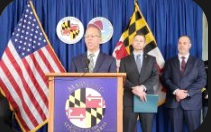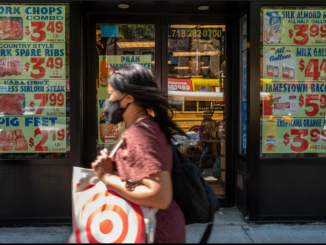
President Joe Biden inadvertently admitted Wednesday that America is experiencing a “recession” that worsened two years ago.
While speaking in Kentucky about infrastructure investments, Biden was explaining the importance of investment in American manufacturing and, specifically, companies that produce semiconductors. When the COVID-19 pandemic snagged the supply chain, America’s problem of outsourcing jobs was painfully exposed, as products that use semiconductors, like cars, could not be fully manufactured.
It was in that context — America’s vulnerability to supply chain issues — that Biden invoked a “recession” and declared that the American economy has been experiencing one.
“No, think about it. Think about why the recession got so bad two years ago,” Biden said.
“Cars got so expensive. We didn’t have semiconductors. Scores of them are in the engines of every automobile. We invented them. And then we went to sleep,” he added. “We exported jobs.”
The admission is noteworthy because Biden and his administration repeatedly denied that America’s economic woes had ever reached the level of a “recession,” even when the GDP experienced two consecutive quarters of negative growth, the standard measure of a recession.
Just as noteworthy was Biden’s observation that economic woes worsened two years ago — the exact time he became president.
Is America really in a recession?
Recent GDP growth and inflation that finally stopped worsening on a month-to-month basis suggest the economy is not experiencing a recession.
Economic analysis, on the other hand, indicates the supply chain crisis of two years ago is not to blame for economic woes, though it may have played an early role. Instead, economists believe that Biden’s stimulus package, passed in the early days of his presidency, overheated the economy.
Still, some economists believe a recession is the only outcome to long-term inflation and the Federal Reserve’s subsequent action of raising interest rates.
Just this week, in fact, former Federal Reserve Chairman Alan Greenspan said a recession is the “most likely outcome” to the inflation crisis because he does not foresee that slowing inflation “will warrant a Fed reversal that is substantial enough to avoid at least a mild recession.”
* Article from: The Blaze


